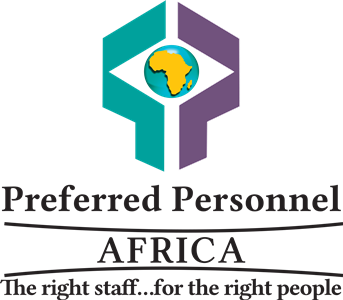By Leigh-Ann Athanasius

What is the gig economy?
The gig economy is characterised by an increase in short-term contracts and freelance workers over full-time, permanent employees. The digital age has made it such that it is easier than ever before to be a freelance worker and hop from assignment to assignment. There has also been an increase in the desire for flexibility; and as remote work has grown in popularity, so has the prevalence of the gig economy.
However, a gig worker can be more than an online freelancer. Many short-term contracts that exist in traditional sectors can be considered gig work; sales representatives and merchandisers, researchers – particularly data collectors and other project-based work. As economies continue to evolve, gig work and workers are increasingly playing a role in almost every industry.
But what does this mean for HR professionals trying to manage such a dynamic workforce?
HR’s most affected areas
Recruitment
Due to its short-term nature; high ‘turnover’ of employees is guaranteed for organizations involved in gig work. The benefits to it are clear as they reduce staffing costs associated with long-term benefits (medical, pension etc.). However, without being able to offer the traditional long-term benefits of fulltime employment, HR needs to be more innovative with what would attract the right the talent to their organisation. Additionally, with the rise of remote work, the competition for talent is on a global scale.

Internal HR staff have an interesting opportunity that external HR services providers such as PPA have been involved in. Gig workers can serve as an organization’s talent pool for potential permanent workers. While many gig workers may prefer to operate as a freelancer, given the right opportunity, gig workers would be willing to take up a permanent position. This gives HR a ready pool of talent that have (1) already successfully completed a project and (2) they are familiar with the organization’s working culture.
Onboarding and Integration
It can be challenging to be continuously onboarding and offboarding employees as they cycle through projects. It is also difficult for an organization and its HR department to develop and embed a company culture into employees involved in gig work.
For HR, there needs to be a focus in streamlining the onboarding, integration and offboarding process. Beyond the administrative process, establishing ‘onboarding communities’ within the organisation made up of permanent employees can help maintain that sense of one-ness within an organisation and all its employees, whether gig workers or full-time employees. It can also bridge the gap between onsite and remote workers of all kinds. A seamless process may act as an incentive for gig workers to work for the company again or recommend them to other freelancers.
Legal compliance issues
Gig workers can cause confusion when it comes to compliance matters. How a gig worker is classified can drastically change the legal obligations around how they are handled by an organization.
It is in the HR professionals’ best interest to work with experts in these matters to ensure that they are fully covered and are making the correct decisions to cover themselves, the gig worker and the organisation.
Can outsourcing help HR in the gig economy?

Outsourcing HR offers a solution to businesses trying to navigate the gig economy, through:
- Expertise: Outsourcing providers are more likely to have experience in managing changing workforces and can provide guidance on legal compliance, recruitment strategies, and performance management tailored to gig workers.
- Streamlined processes: Outsourcing companies often have their HR processes basically down to a science to ensure efficiency. This means they can offer ideal solutions for talent acquisition, onboarding, and performance management for gig workers.
- Flexibility: It can be easier to scale up or down as needed when going through an outsourcing company. This allows for changing numbers of workers without disrupting internal HR processes. Outsourcing companies tend to be more equipped for these fluctuations which aligns with the nature of the gig economy.
- Compliance assurance: Outsourcing providers stay updated on labour laws and regulations, reducing the risk of misclassification and legal issues, especially around payment of statutories.
- Cost-Effective solutions: Outsourcing HR functions can be a cost-efficient way to manage a fluctuating workforce without the overhead costs of maintaining a large HR department. This is especially true if you are a small business or start-up relying heavily on freelancers before building up the in-house capacity for those roles, if at all.
Another compelling statistic is that approximately 85% of companies have outsourced at least one HR function
Discover Preferred Personnel Africa HR outsourcing services.
So, can the gig economy and HR coexist?
They can, and in fact need to. The gig economy is here to stay, and HR professionals must adapt to effectively manage this changing workforce. Challenges related to recruitment, integration, performance management, legal compliance, and well-being should be met with innovative solutions. Outsourcing can play a pivotal role in helping businesses embrace the gig economy and seize the opportunities it presents while reducing potential challenges. By leveraging HR solutions providers, companies can create a productive working relationship with gig workers, ensuring that their organisation thrives in this ever-evolving world of work.



